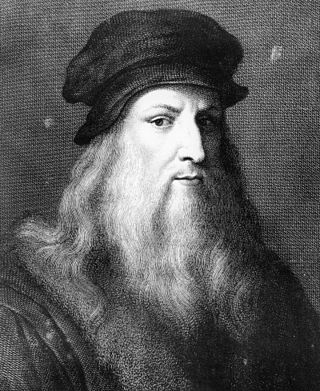Agnosticism is the view or belief that the existence of God, of the divine or the supernatural is unknown or unknowable. It can be categorized as an indifference or absence of firm beliefs in theistic religions and atheism on that basis. Another definition provided is the view that "human reason is incapable of providing sufficient rational grounds to justify either the belief that God exists or the belief that God does not exist."
The teleological argument is an argument for the existence of God or, more generally, that complex functionality in the natural world which looks designed is evidence of an intelligent creator.

Theism is broadly defined as the belief in the existence of at least one deity. In common parlance, or when contrasted with deism, the term often describes the classical conception of God that is found in monotheism — or gods found in polytheistic religions — a belief in God or in gods without the rejection of revelation as is characteristic of deism. Gnosticism is the belief in personal spiritual knowledge.

The raven paradox, also known as Hempel's paradox, Hempel's ravens, or rarely the paradox of indoor ornithology, is a paradox arising from the question of what constitutes evidence for the truth of a statement. Observing objects that are neither black nor ravens may formally increase the likelihood that all ravens are black even though, intuitively, these observations are unrelated.
The Transcendental Argument for the Existence of God (TAG) is the argument that attempts to prove the existence of the Christian God by arguing that logic, morals, and science ultimately presuppose a supreme being and that the Christian God must therefore be the source of logic and morals.
Bayesian inference is a method of statistical inference in which Bayes' theorem is used to update the probability for a hypothesis as more evidence or information becomes available. Bayesian inference is an important technique in statistics, and especially in mathematical statistics. Bayesian updating is particularly important in the dynamic analysis of a sequence of data. Bayesian inference has found application in a wide range of activities, including science, engineering, philosophy, medicine, sport, and law. In the philosophy of decision theory, Bayesian inference is closely related to subjective probability, often called "Bayesian probability".

Richard Granville Swinburne is an English philosopher. He is an Emeritus Professor of Philosophy at the University of Oxford. Over the last 50 years Swinburne has been a proponent of philosophical arguments for the existence of God. His philosophical contributions are primarily in the philosophy of religion and philosophy of science. He aroused much discussion with his early work in the philosophy of religion, a trilogy of books consisting of The Coherence of Theism, The Existence of God, and Faith and Reason.
The characterization of the universe as finely tuned suggests that the occurrence of life in the universe is very sensitive to the values of certain fundamental physical constants and that the observed values are, for some reason, improbable. If the values of any of certain free parameters in contemporary physical theories had differed only slightly from those observed, the evolution of the universe would have proceeded very differently and life as it is understood may not have been possible.
The existence of God is a subject of debate in theology, philosophy of religion and popular culture. A wide variety of arguments for and against the existence of God or deities can be categorized as logical, empirical, metaphysical, subjective or scientific. In philosophical terms, the question of the existence of God or deities involves the disciplines of epistemology and ontology and the theory of value.
Criticism of atheism is criticism of the concepts, validity, or impact of atheism, including associated political and social implications. Criticisms include positions based on the history of science, philosophical and logical criticisms, findings in both the natural and social sciences, theistic apologetic arguments, arguments pertaining to ethics and morality, the effects of atheism on the individual, or the assumptions that underpin atheism.

In monotheistic thought, God is usually viewed as the supreme being, creator, and principal object of faith. In polytheistic thought, a god is "a spirit or being believed to control some part of the universe or life and often worshipped for doing so, or something that represents this spirit or being". Belief in the existence of at least one god is called theism.
The Ultimate Boeing 747 gambit is a counter-argument to modern versions of the argument from design for the existence of God. It was introduced by Richard Dawkins in chapter 4 of his 2006 book The God Delusion, "Why there almost certainly is no God".

Herman Philipse is a professor of philosophy at Utrecht University in the Netherlands. Philipse taught at Leiden University from 1986 until 2003 where he obtained his doctorate in 1983.
The argument from beauty is an argument for the existence of a realm of immaterial ideas or, most commonly, for the existence of God, that roughly states that the elegance of the laws of physics or the elegant laws of mathematics is evidence of a creator deity who has arranged these things to be beautiful and not ugly.
The argument from religious experience is an argument for the existence of God. It holds that the best explanation for religious experiences is that they constitute genuine experience or perception of a divine reality. Various reasons have been offered for and against accepting this contention.
The argument from consciousness is an argument for the existence of God that claims that human consciousness cannot be explained by the physical mechanisms of the human body and brain, therefore asserting that there must be non-physical aspects to human consciousness. This is held as indirect evidence of God, given that notions about souls and the afterlife in Christianity and Islam would be consistent with such a claim.
Atheism, in the broadest sense, is an absence of belief in the existence of deities. Less broadly, atheism is a rejection of the belief that any deities exist. In an even narrower sense, atheism is specifically the position that there are no deities. Atheism is contrasted with theism, which in its most general form is the belief that at least one deity exists.

Philosophical theism is the belief that the Supreme Being exists independent of the teaching or revelation of any particular religion. It represents belief in God entirely without doctrine, except for that which can be discerned by reason and the contemplation of natural laws. Some philosophical theists are persuaded of God's existence by philosophical arguments, while others consider themselves to have a religious faith that need not be, or could not be, supported by rational argument.

God in the Age of Science? A Critique of Religious Reason is a 2012 book by the Dutch philosopher Herman Philipse, written in English and published in the United Kingdom. Philipse found his Atheist Manifesto (1995) to be too hastily and superficially written, and decided to set up a more complete work to systematically refute all the arguments for the existence of God and adherence to any form of theism.

Is There a God? is a 1996 book by British philosopher of religion Richard Swinburne, claiming the existence of the Abrahamic God. The argument rests on an updated version of natural theology with biological evolution and Big Bang theory using scientific inference. In 2010, a revised version of the original book was released under the same title.
































